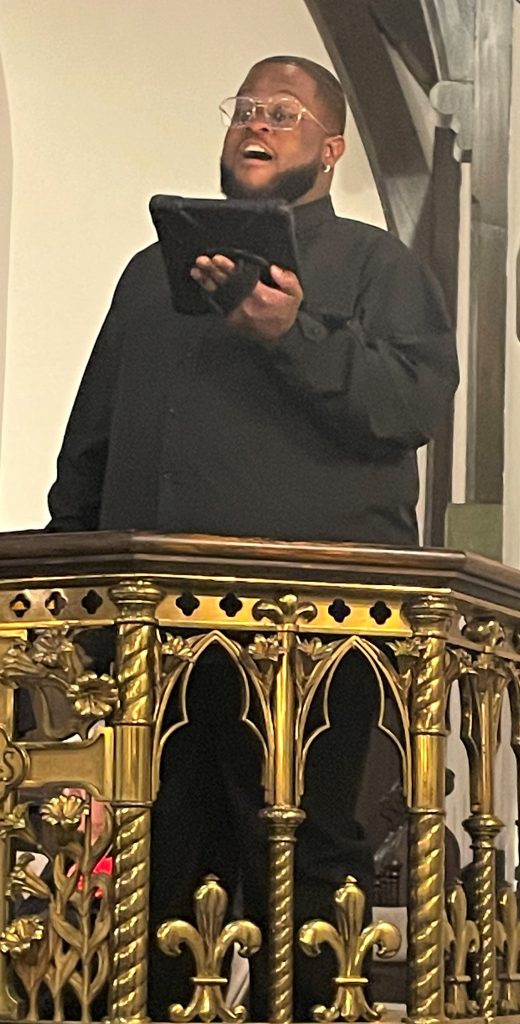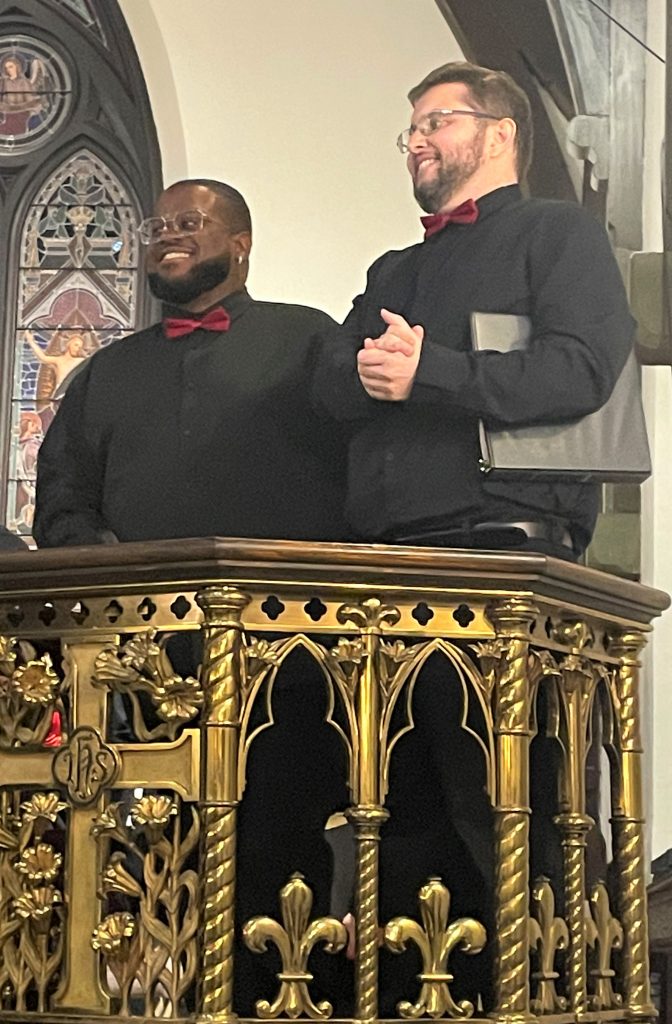
by Kevin T McEneaney
Under superb direction of Christine Gevert, Crescendo Chorale at Trinity Church, Lakeville, CT. delivered choral astonishment! The program, in two parts, offered a delightful range of singing styles with layers of unified vocal enchantment. Opening with two Spirituals arranged by Nathaniel Dett (1882-1943), baritones, sopranos, mezzo-sopranos, and tenors adeptly wove their threads into complex texture that resembled a colorful master quilt. A longish poem by the great Lope de Vega followed with the theme of crossing a bridge, a favorite theme in Chinese poetry. Sung in Spanish, the poem supplied marvelous assonance, especially focused on the letter a, enlivened by the alliteration of p and t. Water drifted “unclothed and unshod” and spoke the warning of how the musical murmurs of seductive poetry are naught but deception like words and quills. Addressed to a certain lady, the lyric implies that now is the last chance for the young lady to becomes a woman and leave the fantasies of childhood behind—upper class, oblique humor. We went from Folk to Baroque in the space of a few minutes.
While these openers were charming, Ysaÿe Barnwell’s “We Are” offered a lyrical firework display for a baritone solo by Jermain Woodard, Jr., who offered an accent of powerful dignity and melody in a style of singing that may be banned in most of Florida (except for Disneyland) with the theme that we are all brothers and sisters, which is what our DNA tells us. The excitement of Woodard’s solo brought out an unprogrammed burst of applause. Yet the chorus was just getting started.
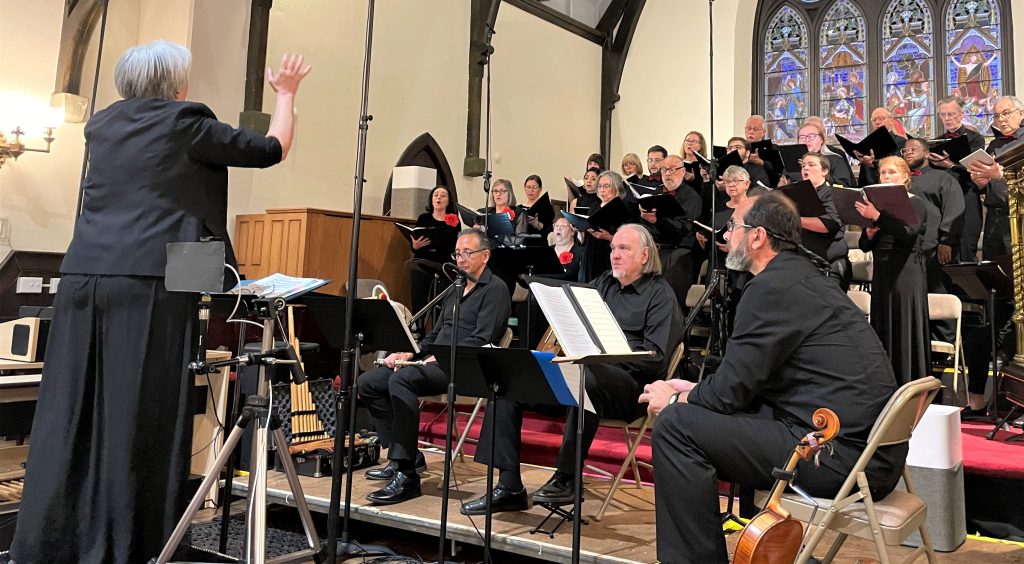
Nathaniel Dett’s “Listen to the Lambs” was a short piece where soprano Nadia Aguilar excelled; she sang “Estrella” by the Mexican composer Manuel Ponce (1882-1948) whose compositions should appear more often in this country (especially his solo piano work); this lyric was about a young girl about to die….
From Brazil “I’ve come to say goodbye” by the Venezuelan composer, arranger, and conductor Jesús Ochoa told the story of a young man in love who is leaving to ambiguity (of fortune, battle, we do not know) yet the lyric remains ardent and poignant as the chorus collectively nailed the sentiment. Here the chorus was joined by guitar, bombo, charango, and quena.
Christine Gevert encouraged the audience to join in and sing two verses of the classic folk song “Swing Low, Sweet Chariot” which was accomplished with enthusiasm and sonority. The first half closed with Nathaniel Dett’s “The Chariot Jubilee” for chorus and tenor where Igor Ferreira displayed his ability to outshine the organ.
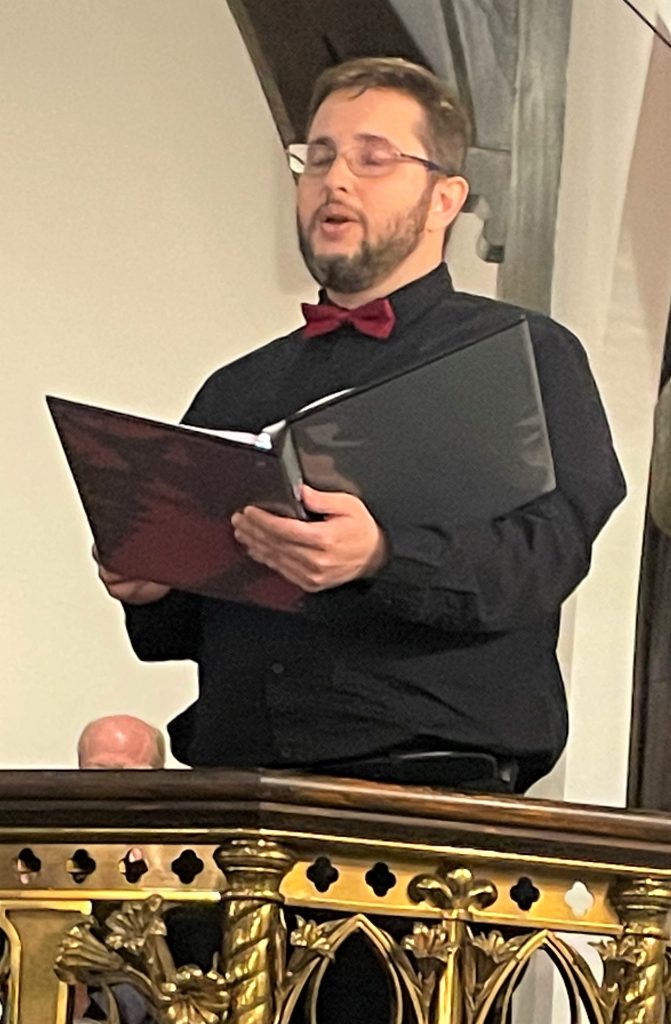
The second half of the concert, In Search of the Bridge, was commissioned by Crescendo for composer Dr. John Myers who teaches at Bard College at Simon’s Rock; this is his fourth commission from Crescendo and it offered some extraordinary moments; two members of the chorus informed me of how difficult some of the songs were.
“I am the Bridge” by Carole Boston Weatherford, arranged by Myers, introduced the central theme with chorus, soprano Nadia Aguilar, and baritone Jermaine Woodard, Jr. emphasized that we are all bridges to each other. This short piece was followed by a poem arranged by Florence B. Price (1887-1953) whose work is now undergoing a national revival. Here the music was far more accomplished than the poem.
“Swinging Bridge,” a poem by Marilou Awiakta, arranged by Myers, melded into postmodern disintegrating cadence produced that marvelous echo was words and music illuminate each other. I was prepared to dislike the poem and the musical approach, yet I was won over with excess enthusiasm for the wondrous merger. I wanted to hear it once again, but that was not possible.
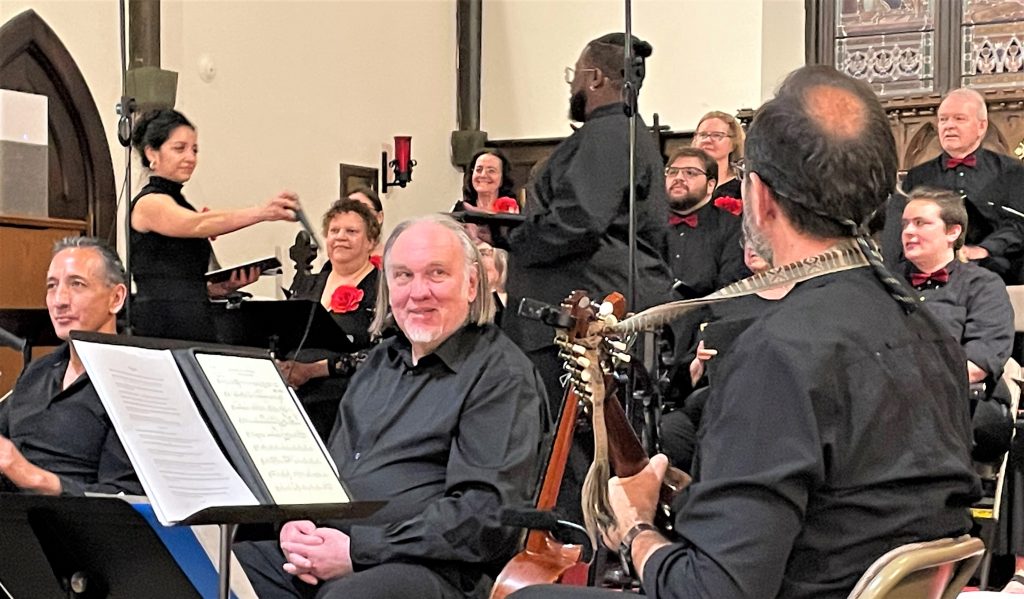
Next was a reading improvisation on a poem, “What is a Bridge to Me,” by Emma Jean Sisk, a seventh-grade student, who read the poem; it was followed by a rap version of Emma’s poem written by fellow student, Tivon Hall-Love, and performed by Aguilar and Woodard.
“The Pierless Bridge” by Emily Dickinson, arranged for chorus, piano, and baritone (Woodard) by Mark Sirett (b.1952) dramatized the poem which remains dense, abstract, and mystical. This was another highlight in the concert.
“On Immigration” by poet Prageeta Sharma arranged by Myers dramatized the humiliation of immigration with chorus, pan flute, charango, guitar, and piano.
“Bridge” by musician and songwriter Gustavo Cerati (1959) featured the upbeat theme of love as a bridge.
The marvelous finale, “Behind my Voice,” based upon a poem by Circe Maia from Uruguay and arranged by Daniel Viglietti in 1978 with Southeast Asian eight-beat rhythms delivered mighty Andean lift to close out the concert with an impressive by Igor Ferreira who was furiously and sublimely lyrical!
This concert offered an amazing anthology of music and choral singing. I can envision other venues for performances: Hartford, Norfolk, even Lincoln Center.
